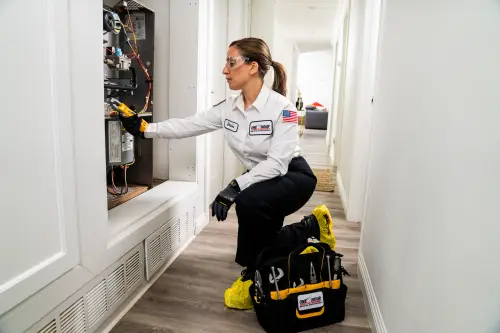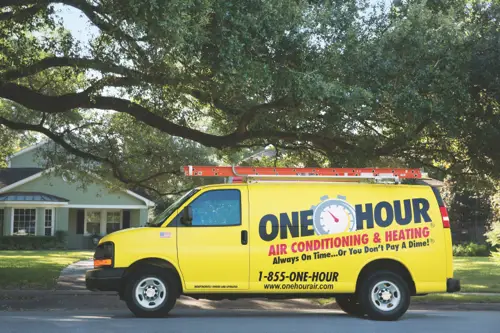The Average Lifespan Of Residential Furnaces

Hey there! After spending 15 years in the HVAC industry, one of the most common questions I get from homeowners is, “When do I need to replace my furnace?” Let’s talk about what you can expect from your heating system and how to keep it running smoothly for as long as possible.
The Simple Answer (But There’s More to It)
Here’s a quick take, Most furnaces will last somewhere between 15 and 20 years. But, like your car, how long it actually lasts depends a lot on how well you take care of it. In my experience, I’ve seen some furnaces die at 12 years and others still going strong at 25!
Different types of furnaces have different lifespans too. Gas furnaces typically hang in there for 15-20 years, electric ones can go for 20-30 years (fewer moving parts means less wear and tear), and oil furnaces usually last 15-25 years if you maintain them well.
What’s Actually Killing Your Furnace?
Let me tell you about the things that really impact how long your furnace will last. I’ve seen plenty of preventable furnace deaths in my time! First up is installation quality. You wouldn’t believe how many problems I’ve seen from poorly installed systems. It’s like building a house on a shaky foundation everything else is going to suffer.
Maintenance is huge too. I always tell my clients it’s just like getting oil changes for your car. Skip the annual tune-ups, and you’re asking for trouble. I had a customer last week who hadn’t changed their filter in two years (yikes!) and couldn’t figure out why their furnace was struggling.
Location matters more than you might think. If you’re up in Minnesota running your furnace nine months a year, it’s going to wear out faster than one in Florida that only runs a few weeks each winter.
Warning Signs Your Furnace Is on Its Last Legs
After seeing thousands of furnaces, I can tell you there are some pretty clear signs that yours might be ready for retirement:
- Your energy bills are creeping up even though your usage hasn’t changed. This is usually one of the first signs – your furnace is working harder to do the same job.
- If you’re on a first-name basis with your repair person, that’s not great news. Multiple repairs in a single season usually means it’s time to start shopping.
- Weird noises are another red flag. A healthy furnace should be relatively quiet. If yours sounds like it’s trying to start a rock band, we might have a problem.
How to Make Your Furnace Last Longer (Yes, You Can!)
The good news? There’s plenty you can do to extend your furnaces life. Here are my top tips after years in the field:
- Get those annual check-ups! I can’t stress this enough. A good maintenance visit can catch small problems before they become expensive disasters.
- Change your filter regularly. This is the easiest thing you can do yourself. Set a reminder on your phone – every 1-3 months, depending on your home.
- Consider a smart thermostat. These aren’t just cool tech toys, they can help your furnace run more efficiently and prevent unnecessary wear and tear.
The Big Question: Repair or Replace?
This is probably the toughest decision homeowners face. Here’s my rule of thumb after years of helping people make this choice,
If your furnace is under 10 years old and the repair would cost less than half of a new unit, go ahead and repair it. But if you’re looking at an expensive repair on a 15+ year old furnace? It’s probably time to say goodbye.
Making the Final Call
Listen, I know replacing furnaces isn’t anyone’s idea of a fun way to spend money. But sometimes it’s the smartest financial move in the long run. A new, efficient system can actually save you money on your heating bills and give you peace of mind for years to come.
If you’re not sure where your furnace stands, get a pro to take a look. Most of us are happy to give you an honest assessment of your system’s condition and help you plan for the future. Remember, every home and situation is different. What worked for your neighbor might not be right for you. But armed with this information, you can make a smart decision about your home’s heating future.
